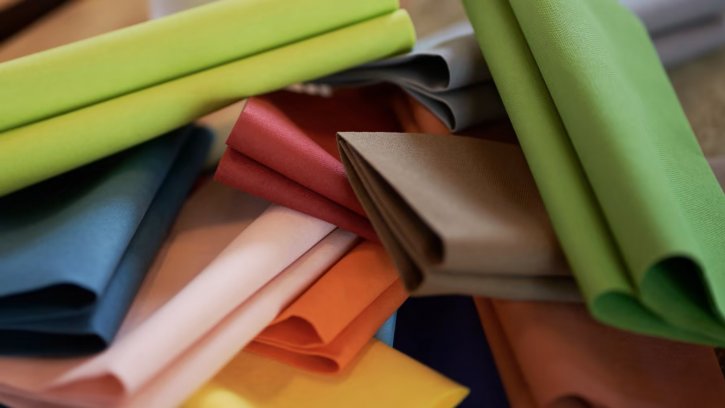
Positive eco-balance with Extra Organic
Airlaid materials have special binders derived from lemon peel, corn, potatoes and other food waste.

11th July 2023
Innovation in Textiles
|
Geneva, Switzerland
Duni Group, a leader in tablewear for the restaurant and hotel industries, has this year launched a range of premium napkins based on airlaid nonwovens that are fossil-free, fully renewable and available in a range of colours thanks to the innovation of fellow Swedish company OrganoClick.
In the latest newsletter from the INDEX nonwovens exhibition, it is reported that the Bio Dunisoft premium napkins are bound together by OrganoClick’s OC-BioBinder, which is derived from lemon peel, corn, potatoes and other food waste.
OrganoClick has won several awards for its development of renewable and functional cellulose-based materials. Through natural chemistry solutions it is enabling a wide range of products in the textiles, wood and biocomposite industries to become biodegradable, non-toxic and compostable.
“We are very proud of our collaboration with Duni which has resulted in the world’s first fossil-free premium napkin,” said Mårten Hellberg, founder and CEO of OrganoClick. “With our biobased and biodegradable binders we are enabling our customers to end their dependency on oil-based plastics and release zero microplastics. Duni BioSoft is a great example of real circular design and has now entered into the true bioeconomy.”
Lemon peel and potatoes
“It’s a small step for lemon peel and potatoes, but a big step for the industry,” added Emma Björnhammer, Duni product team manager. “We are used to food residues ending up on napkins at mealtimes, but now they are in the napkins even before they are put on the table. These are our most important launches in ten years and part of our long-term plan to increase the use of renewable materials, phase out all fossil plastics from tour product portfolio and to be a fully circular business by 2030.”
Cellulose
Compared to competing technologies, airlaid manufacturing represents a small share of nonwovens capacity globally, but is responsible for some unique products based on natural wood fibres from cellulosic pulp.
The process involves mixing randomly oriented short fibres with air to form a uniform mixture, that is then deposited on an air-permeable moving roll or conductor. Formation can involve exploiting temperature and heat alone, using latex as a binder, or by hydrogen bonding involving special temperature and pressure conditions with high humidity.
The resulting airlaid nonwovens have unique physical features such as high elasticity, softness, very high liquid absorption and excellent liquid retention performance.
They are employed in absorbent hygiene components, wet wipes and medical products, in addition to tableware and food packaging applications.
GlatPure
A leader in the field of airlaid nonwovens production is Glatfelter which has also worked with OrganoClick on the development of biobased and home-compostable airlaid materials.
In June this year, Glatfelter’s GlatPure acquisition and distribution layers (ADLs) and absorbent cores received Class 4 OK Biobased certification from TUV Austria, with the biobased carbon content of both fabrics recorded at 100%.
The OK Biobased certification from TUV Austria is a recognised global standard for verifying the biobased content of products and guarantees that the certified products are derived from renewable sources and meet stringent criteria.
GlatPure ADLs and absorbent cores are are manufactured with renewable plant-based raw materials and integral components of Glatfelter’s menstrual care products, designed to provide exceptional performance and comfort while minimising the environmental impact.

Business intelligence for the fibre, textiles and apparel industries: technologies, innovations, markets, investments, trade policy, sourcing, strategy...
Find out more